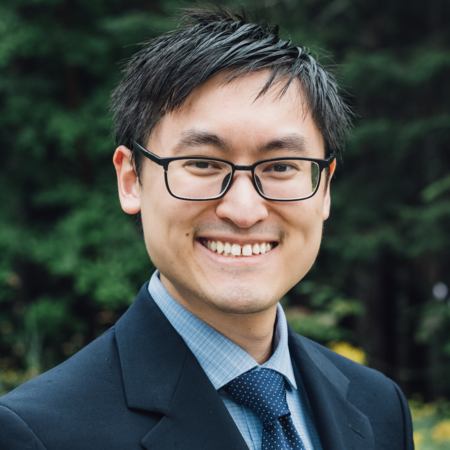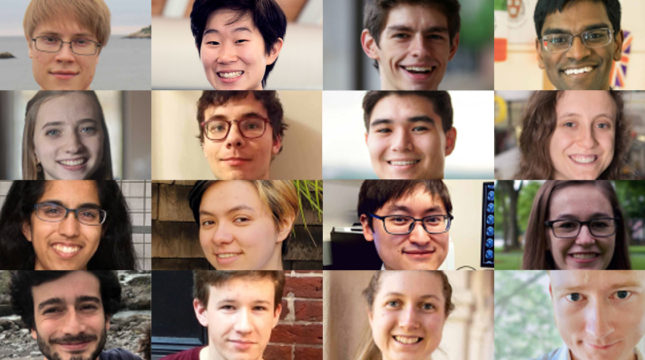Maxwell Wang

Using mathematics and neuroscience, Maxwell Wang is personalizing the way we care for our patients.
Entering an MD/PhD program at the University of Pittsburgh and Carnegie Mellon University in 2017, his research focused around a central goal: can we use precision instruments and algorithms to identify the right treatment for the right patient? Maxwell first tackled this problem in treating depression, developing an analysis pipeline that could accurately predict two months in advance whether an antidepressant would work in patients.
He recently received his PhD in Neural Computation and Machine Learning at CMU where he was advised by Avniel S. Ghuman and Robert E. Kass. His thesis focused on the intersection between continuous analysis of neural signals over timescales orders of magnitude slower and longer than what is conventionally studied in cognitive neuroscience and methods in dynamical systems learning.
A graduate of Washington University in St. Louis, Maxwell attended on a full scholarship. He anticipated becoming an aeronautical engineer, but after a conversation with Professor ShiNung Ching, an electrical engineer turned neuroscientist, Maxwell decided to switch course. After graduating early with a bachelor’s degree in electrical engineering, Maxwell worked for a year with Professor Pratik Mukherjee and Dr. Cyrus Raji at the University of California, San Francisco, developing algorithms to detect changes in the brain due to disease.
The son of Taiwanese immigrants, Maxwell was born in New York and grew up in the industrial city of Rockford, Illinois. Finding his school poorly resourced, Maxwell started learning math by sneaking into the back of classrooms at a local community college while he was in elementary school. A valued mentor he met through there, Professor Tom Anderson, connected him with the math department at the University of Illinois, Urbana-Champaign where he started taking courses in calculus and applied math in fifth grade.
Fascinated by the potentials of applying computational math to engineering applications, Maxwell dropped out of high school and studied a variety of topics ranging from computer science to industrial skills, such as welding. While still a young teenager, he published his first research manuscript, with Professor Brian Williams of MIT CSAIL, on machine learning algorithms to direct networks of unmanned aerial vehicles.
Graduate Studies
Undergraduate Studies
Awards
2018, Spring Alumni Travel Award, Amgen
2016, Rick Grodsky Electrical & Systems Engineering Award for Technical Achievement, Washington University in St. Louis
2015, Outstanding Sophomore Award, Washington University in St. Louis Department of Electrical and Systems Engineering
Related News


Related Events
